- Faculty of Engineering
- Department of Electronics and Computer Engineering Department of Electrical Systems Engineering Department of Mechanical Systems Engineering Department of Intelligent Mechanical Engineering Department of Civil and Environmental Engineering Department of Architectural Engineering
- Faculty of Applied Information Science
- Department of Computer Science Department of Information and Communication Department of Information Systems and Management
- Faculty of Environmental Studies
- Department of Architectural Design Department of Global Environment Studies
- Faculty of Life Sciences
- Department of Clinical Engineering Department of Food Sciences and Biotechnology
- Graduate School
- Major in Intelligent Structure and Functional Science Major in Electrical and Electronic Engineering Major in Mechanical Systems Engineering Major in Civil and Architectural Engineering Major in Information Systems Science Major in Environmental Studies Major in Biological and Biomedical Engineering
Faculty of Engineering
Department of Electrical Systems Engineering
- Department Introduction
- Education and Research Areas
- Subject Introduction
- Curriculum
- Careers and Further Study
- Department Introduction MOVIE
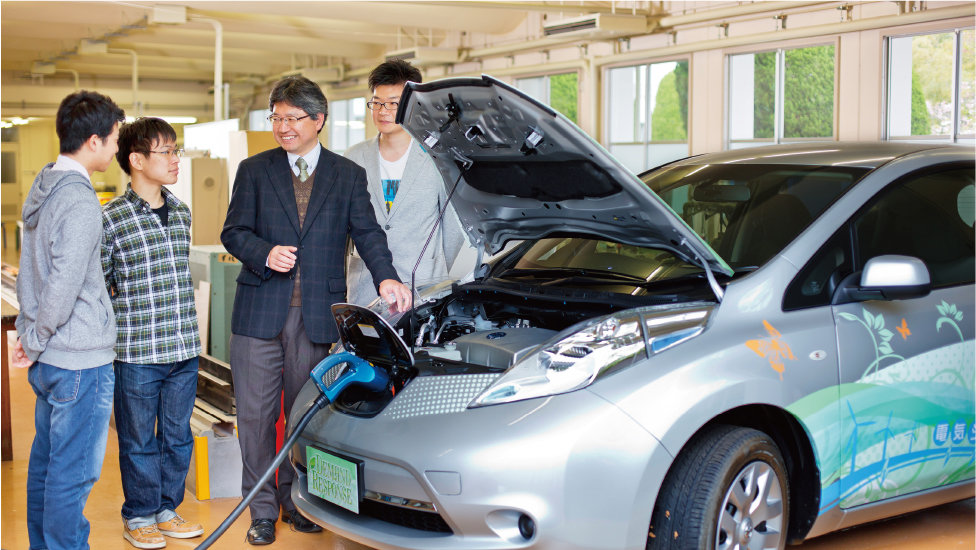
Producing specialists in energy, computers and communications.
Increasing attention is being focused on new technologies in the area of electrical energy, such as smart grids and renewable energy. The Department of Electrical Systems Engineering cultivates engineers who are equipped to address contemporary needs in advanced energy, communications and computer control-focused electrical engineering, as well as other, associated areas.
Education and Research Areas
-
Energy Systems
Students learn about clean energy, energy management, environmental technology, relevant laws and regulations and other topics. The energy and electricity-related knowledge acquired here is applicable to a diverse range of jobs, including development and management of a power company’s energy systems, hardware design and development at an electrical equipment manufacturer, production technology and production control engineering at a manufacturer’s production facilities, and facilities and maintenance management at a building and facilities construction firm.
-
Telecommunications Systems
Students learn about signal transmission and receiving systems, digital communications, network technology and other topics. The information they acquire is applicable to communications jobs connected with either hard and soft infrastructure, such as hardware/software designers at communications equipment manufacturers, network engineers in a variety of industries, production technology/production control engineers at a manufacturer's production facilities, and communication infrastructure building and maintenance specialists.
-
Computer Systems
Students learn about system and device measurement/control technology, LSI design technology and other topics. The computer and control-related knowledge acquired here is applicable to a diverse range of jobs, including systems engineer at an IT firm, network engineer in a variety of industries, production technology/production control engineer at a manufacturer's production facilities, and LSI design engineer at a semiconductor manufacturer.
Subject Introduction
-
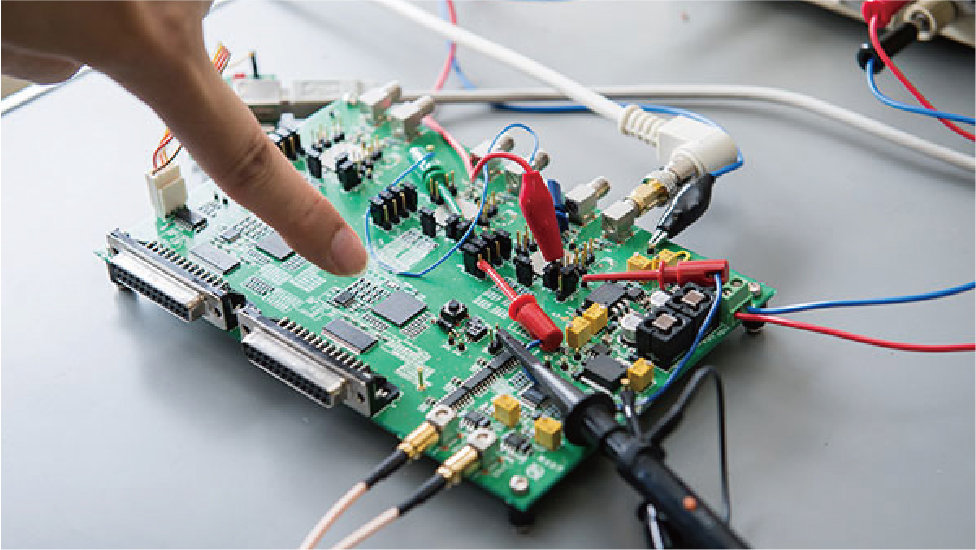
Computer Measurement Systems
Digital electronic circuitry is the core technology underlying the computer measurement systems and various measurement instruments and devices that have gained more widespread usage with the development of semiconductor technology in recent years. Students will gain a deeper, fundamental understanding of circuitry mechanisms and design methods.
-
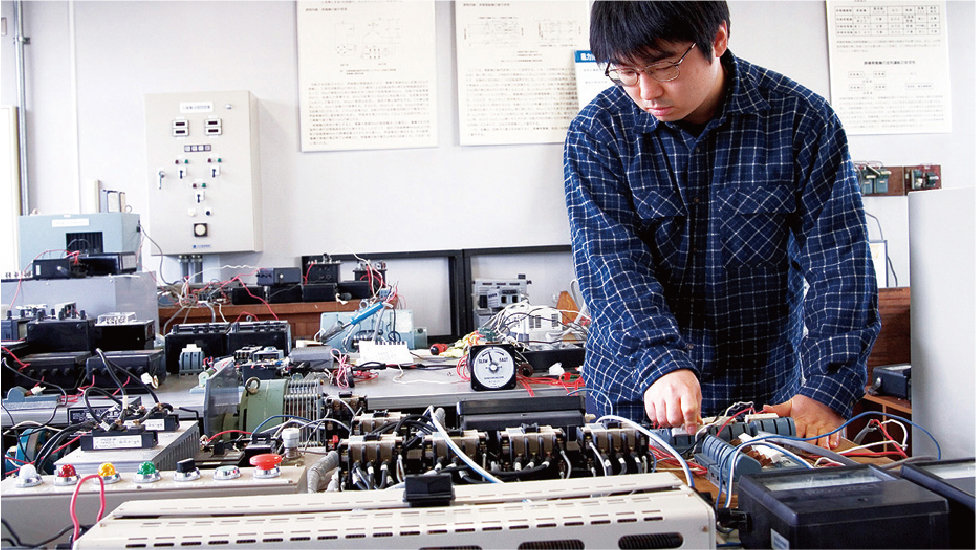
Power Transmission Engineering
Students will learn the basic principles and characteristics of power generation central to modern commercial power systems, as well as learn how to convert primary energy resources, such as fossil fuels, and renewable energy into electrical energy, and then how to convert that into light and heat energy.
-
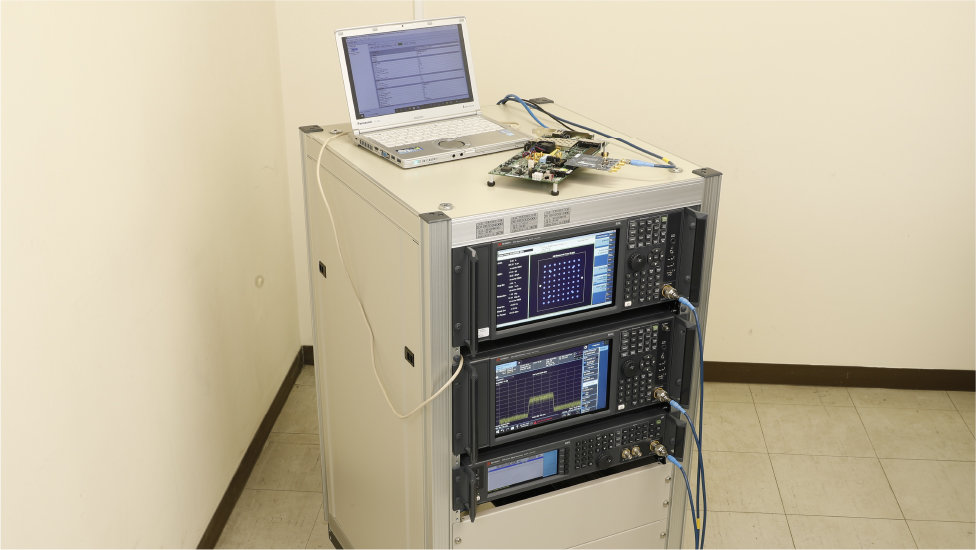
Communications Engineering
Students will gain a fundamental understanding of the telecommunications systems and networks which underpin our information-based society, as well as learn about the current state and future of analog and digital signal processing, audio and video, and digital transmission.
-
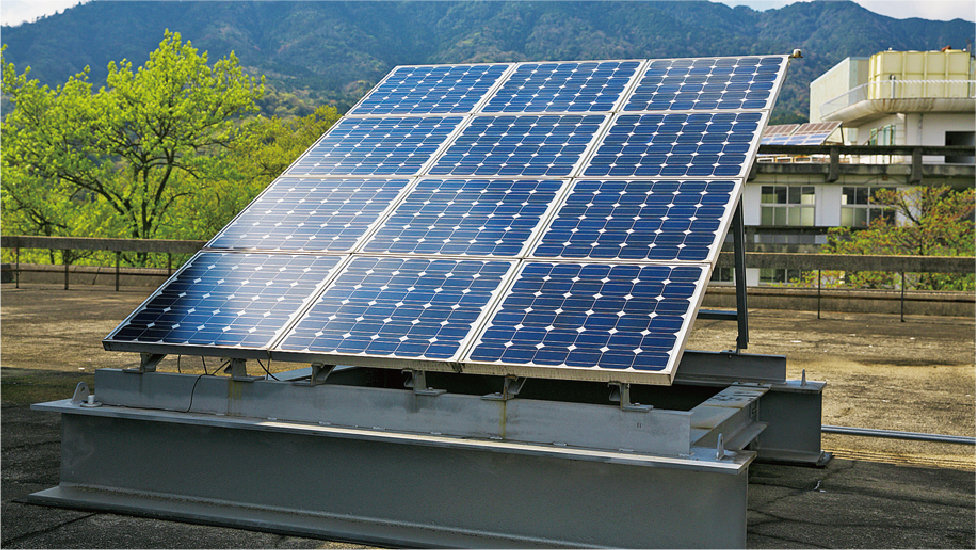
Power Generation Engineering
Students will learn about and gain a deeper understanding of the technological trends for, as well as characteristics and challenges of, photovoltaics, fuel cells, wind and other types of alternative energy that are attracting attention in the face of increasing electrical energy consumption.
-
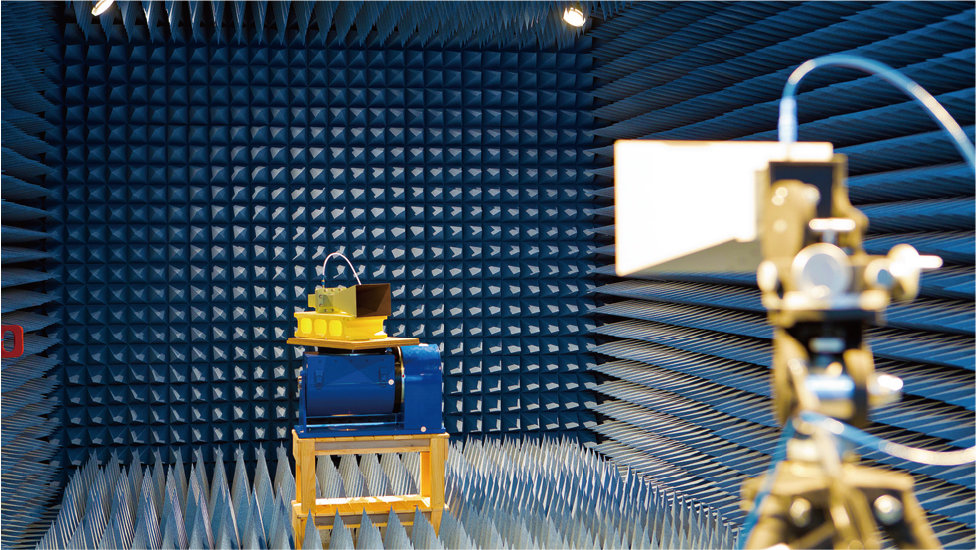
Electromagnetic Wave Engineering
Smartphones, Wi-Fi and other wireless communications systems make use of electromagnetic waves to transmit video, audio, textual, etc., data. Through the study of electromagnetic wave engineering, students will learn what these electromagnetic waves are and how they are propagated. In addition, students will learn basic theory regarding antenna requirements for electromagnetic wave transmission and receiving.
Curriculum
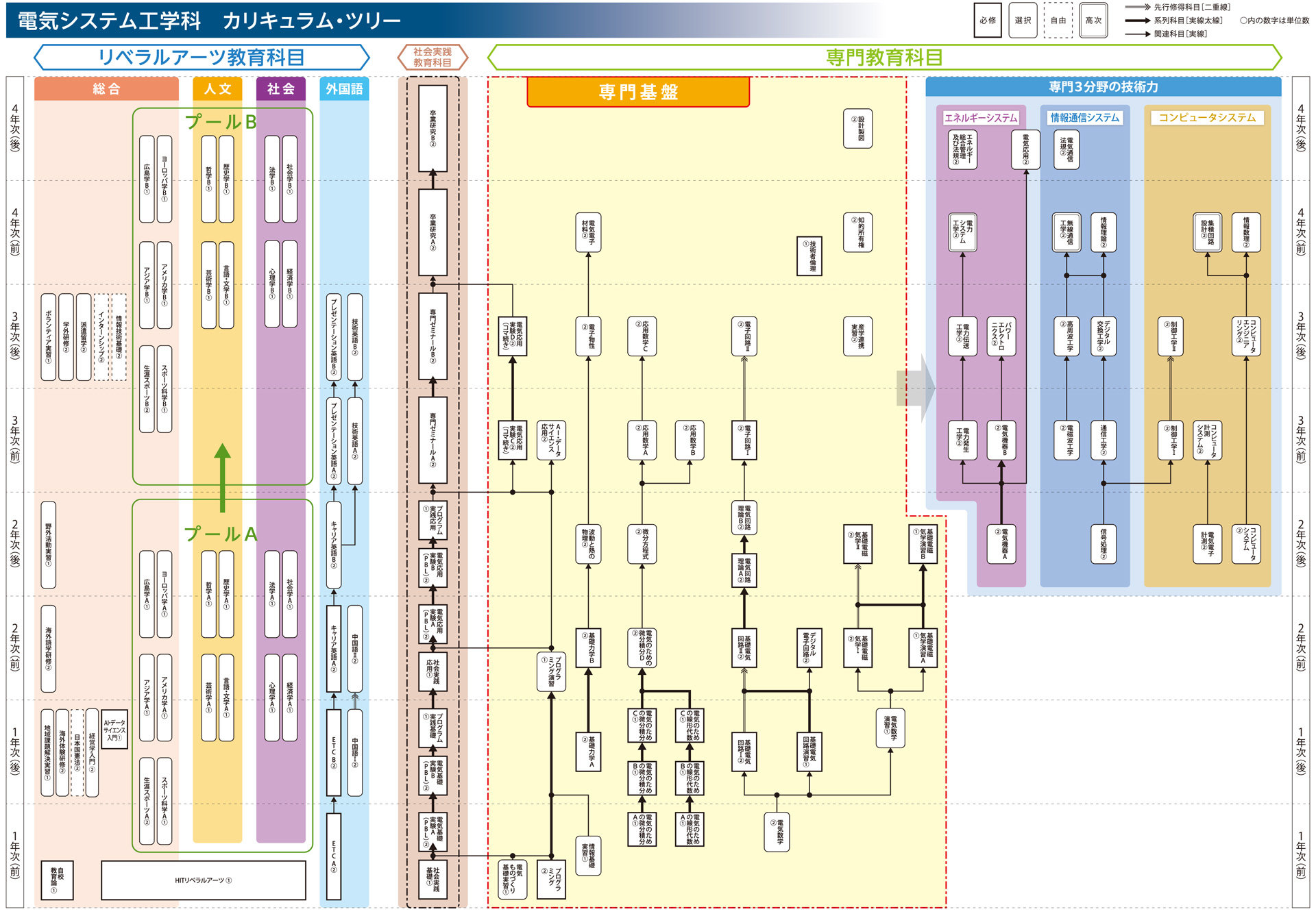
Japanese only






